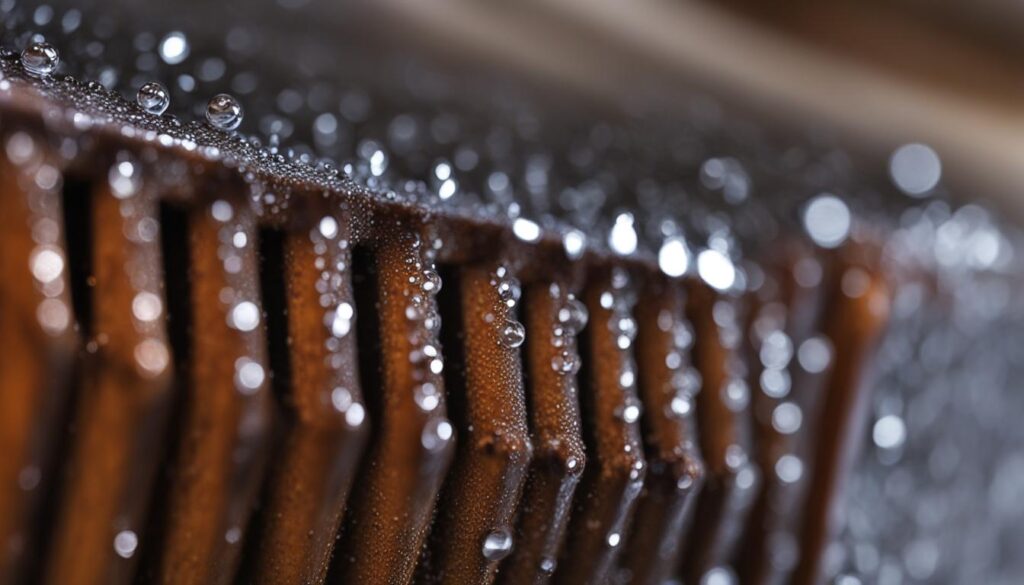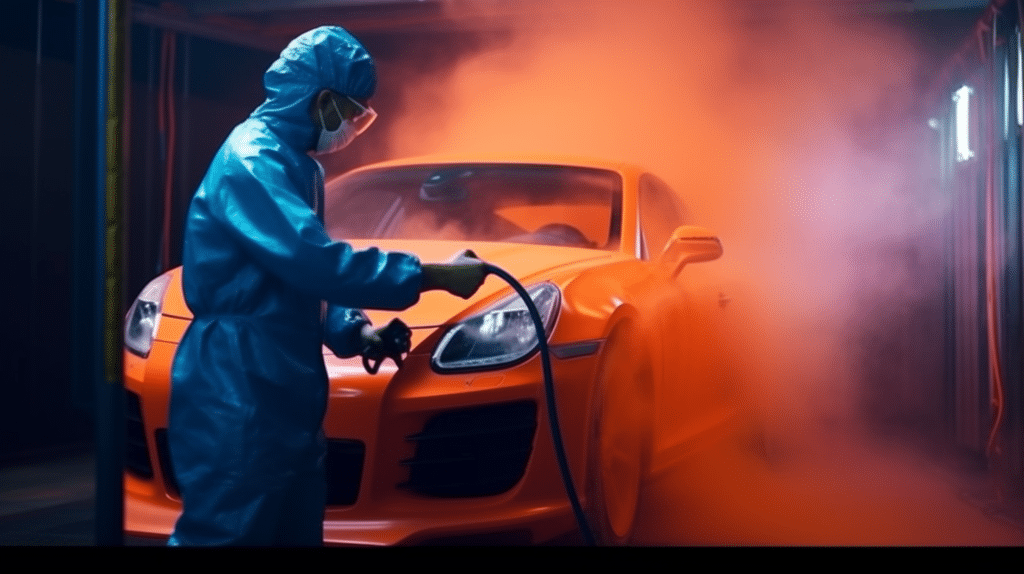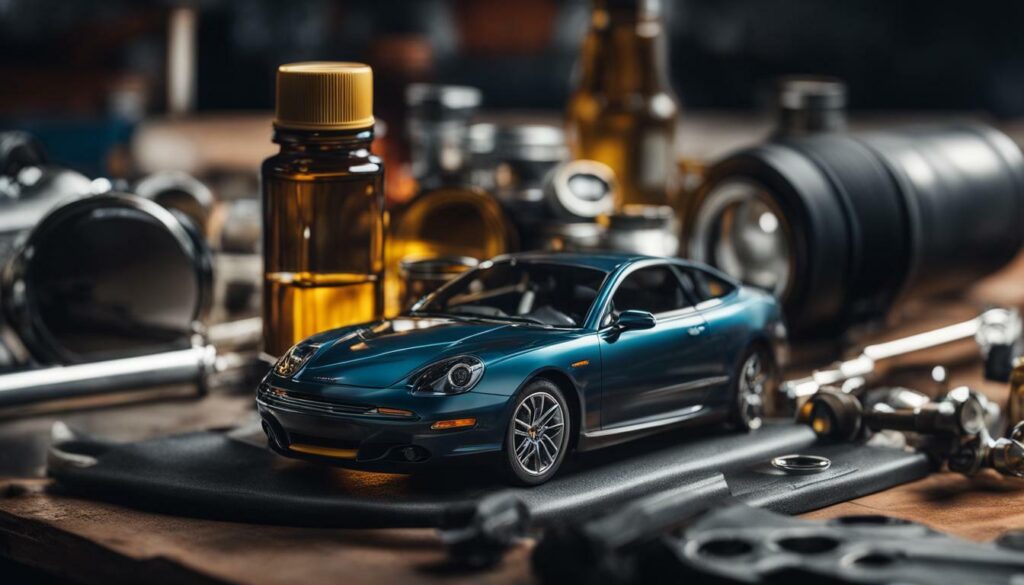As a vehicle owner, I understand the frustration that comes with radiator leaks and issues. Not only can they lead to overheating and engine damage, but they can also leave you stranded on the side of the road. That’s why it’s crucial to be aware of the common problems associated with radiators and know how to address them effectively.
One of the telltale signs of a leaking radiator is a rising temperature gauge. If you notice your engine running hotter than usual, it’s essential to investigate further. Check for any puddles of coolant under your vehicle, as well as a low coolant reservoir. Discoloration or rust in the engine bay can also indicate a radiator issue.
If your engine temperature climbs too high, it’s crucial to avoid driving your vehicle to prevent further damage. Inspect any puddles under the vehicle and check the color. A yellowish or black liquid could signify motor oil, while orange or green liquid typically indicates a coolant leak.
While temporary solutions can be used to stop radiator fluid from leaking, it’s advisable to have a professional inspect the radiator and determine if a replacement is necessary. A reliable technician can accurately diagnose the issue and ensure a long-lasting fix.
Key Takeaways:
- Common signs of radiator leaks include a rising temperature gauge and puddles of coolant under the vehicle.
- Discoloration or rust in the engine bay may indicate a radiator issue.
- Avoid driving your vehicle if the engine temperature climbs too high to prevent further damage.
- Consult a professional for a thorough inspection and proper diagnosis of radiator leaks.
- Temporary solutions can be used as a stopgap measure, but a replacement may be necessary for a long-term fix.
Causes of Radiator Leaks and How to Fix Them
When it comes to radiator issues, leaks are a common problem that can lead to serious engine damage if not addressed promptly. Understanding the causes of radiator leaks and the steps to fix them is crucial for maintaining the health of your vehicle’s cooling system.
The Causes of Radiator Leaks
There are several factors that can contribute to radiator leaks:
- Corrosion: Over time, the metal components of the radiator can corrode, resulting in small holes or cracks where coolant can escape.
- Manufacturing Defects: Occasionally, radiator leaks can be caused by manufacturing defects, such as faulty welds or weak joints.
- Overheating: Excessive engine heat can put strain on the radiator, causing it to weaken and develop leaks.
- Weak Coolant: Coolant plays a crucial role in keeping the radiator functioning properly. If the coolant becomes diluted or weak, it may not be able to effectively cool the engine, leading to overheating and potential leaks.
Identifying the cause of the leak is the first step in finding a solution.
Fixing Radiator Leaks
There are several options for fixing radiator leaks, depending on the severity of the issue:
- Temporary Solutions: Products like AlumAseal Radiator Stop Leak and Conditioner can provide a quick and temporary fix for small leaks. These sealants work by circulating through the cooling system and sealing the holes or cracks in the radiator.
- Tightening Valves: Sometimes, a loose valve or hose clamp can be the source of a radiator leak. Check all the connections and tighten them as needed.
- Replacing Faulty Parts: If the leak is due to a faulty radiator cap, hose, or other component, it may be necessary to replace the part to stop the leak.
- Draining and Replacing the Radiator: In more severe cases, where the radiator is heavily corroded or has significant damage, replacing the entire radiator may be the best course of action.
It’s important to remember that while temporary solutions can provide a quick fix, they may not address the underlying issue. For long-term radiator health, it is recommended to consult a professional if you suspect a serious leak or if temporary solutions are not effective.
By understanding the causes of radiator leaks and taking appropriate action, you can ensure the longevity and functionality of your vehicle’s cooling system.
| Causes | Solutions |
|---|---|
| Corrosion | Temporary solutions like AlumAseal Radiator Stop Leak and Conditioner Replacing faulty parts Draining and replacing the radiator |
| Manufacturing Defects | Replacing faulty radiator components |
| Overheating | Cooling system maintenance Addressing engine overheating |
| Weak Coolant | Checking and replacing coolant Maintaining proper coolant ratio |
Tips for Preventing and Managing Radiator Leaks
Preventing radiator leaks is essential for maintaining the proper functioning of your vehicle’s cooling system. Regular maintenance and inspection play a crucial role in ensuring the longevity of your radiator. Here are some helpful tips to prevent radiator leaks and manage any potential issues:
1. Regularly Check Coolant Levels and Strength: Keep an eye on the coolant level in your radiator and ensure it is within the recommended range. Also, check that the coolant is at the proper strength to provide effective cooling.
2. Avoid Overfilling the Radiator: Overfilling the radiator can cause pressure buildup, leading to leaks. Follow the manufacturer’s instructions and maintain the coolant level at the recommended level.
3. Get Professional Servicing: Regularly have your radiator serviced by a professional technician. They can perform an in-depth inspection, detect any potential issues or leaks, and provide appropriate maintenance or repair.
4. Flush the Cooling System: Flushing the cooling system at regular intervals helps remove accumulated sediment and prevents radiator blockages. This proactive measure can significantly reduce the risk of leaks and ensure optimal radiator performance.
5. Monitor for Signs of Radiator Problems: Keep an eye out for any signs of radiator problems like unusual noises, steam coming from under the hood, or unusual smells. Early detection can help you address the issue promptly and prevent more significant damage.
In summary, preventing radiator leaks involves regular maintenance, monitoring for signs of problems, and taking proactive measures. By implementing these radiator maintenance tips, you can extend the lifespan of your radiator, avoid costly repairs, and keep your vehicle running smoothly.
FAQ
What are the signs of a radiator leak?
Common signs of a radiator leak include a rising temperature gauge, puddles of coolant under the vehicle, low coolant reservoir, and discoloration or rust in the engine bay.
What should I do if I notice a radiator leak?
If you notice a radiator leak, it’s important to avoid driving the vehicle to prevent further damage. Inspect any puddles under the vehicle and check the color, as different colors can indicate different types of leaks. It’s recommended to have a professional inspect the radiator and determine if a replacement is necessary.
What causes radiator leaks and how can I fix them?
Radiator leaks can be caused by factors such as corrosion, manufacturing defects, overheating of the engine, and weak coolant. Temporary solutions can be used to stop radiator fluid from leaking, but it’s best to have a professional inspect and determine the best course of action. Products like AlumAseal Radiator Stop Leak and Conditioner can provide a temporary solution for sealing leaks, while other options include tightening valves, replacing faulty parts, or draining and replacing the radiator.
How can I prevent radiator leaks?
Preventing radiator leaks involves regular maintenance and inspection of the cooling system. This includes checking the coolant level and strength, avoiding overfilling the radiator, and ensuring proper servicing by professionals. Flushing the system periodically can remove sediment and prevent radiator blockages. Regularly monitoring for signs of radiator problems can help detect issues early on and prevent further damage to other components of the vehicle.




